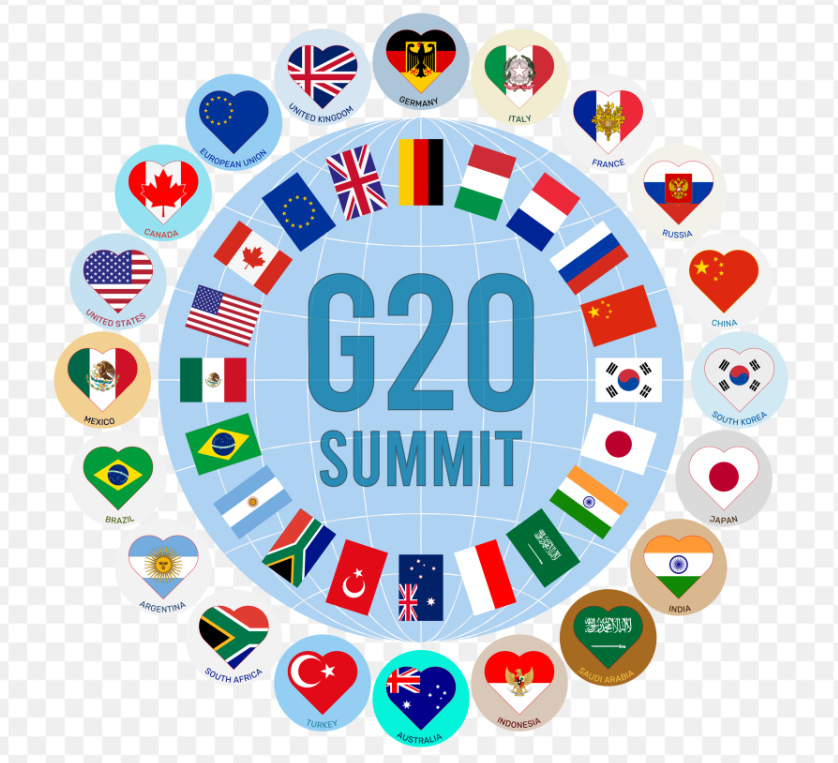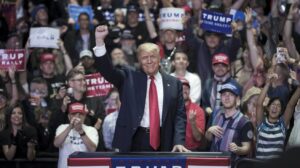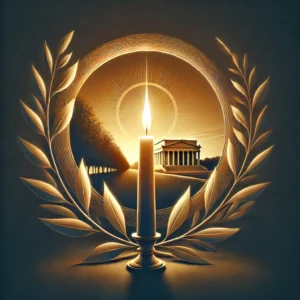India (Bharat), Narendra Modi’s decision to gift hand-spun scarves to world leaders during their visit to New Delhi was a deeply symbolic act, steeped in historical significance. It aimed to shine a spotlight on India’s freedom movement and pay homage to the country’s beloved father of independence, Mohandas K. Gandhi, as the leaders gathered at the Rajghat memorial, the site where Gandhi was assassinated in 1948.
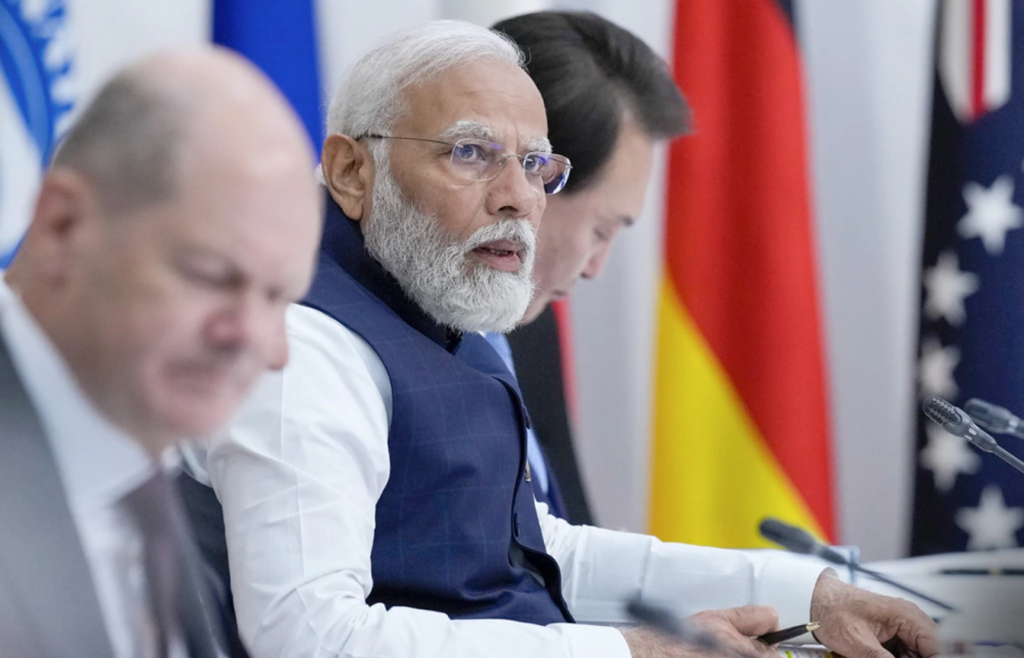
As the leaders of the Group of 20 (G20) nations entered the hallowed grounds of Rajghat, they were greeted with khadi scarves, a powerful symbol of Gandhi’s non-violent resistance campaign that played a pivotal role in securing India’s independence from British colonial rule.
Modi himself was seen carefully draping the handwoven, off-white cotton material around the necks of prominent leaders, including US President Joe Biden and British Prime Minister Rishi Sunak. They posed for photographs against a backdrop of the Sabarmati Ashram, located in the state of Gujarat, which was one of Gandhi’s many residences across India.
Bharat known as INDIA:
For Gandhi, a global icon of peace and non-violence, khadi scarves symbolized self-reliance. These scarves were garments that could be locally produced by Indians, signifying a deliberate boycott of imported or British-made products during India’s colonial era. This gesture instilled a sense of pride and confidence among Indians, demonstrating their ability to cultivate their own industrial potential and reduce dependency on their colonial rulers.
Gandhi was known for weaving his own khadi clothing using a charkha, or spinning wheel, an instrument that has become an enduring symbol of India’s political and economic emancipation.
On that solemn Sunday at Rajghat, world leaders gathered in silence, each wearing the khadi scarves around their necks, standing before a raised marble platform that commemorated the spot where Gandhi was cremated.
Modi, in a statement on X (formerly known as Twitter), conveyed the timeless ideals of Gandhi, stating, “As diverse nations converge, Gandhi Ji’s timeless ideals guide our collective vision for a harmonious, inclusive, and prosperous global future.”
In essence, Modi’s gesture of gifting khadi scarves to world leaders not only honored the legacy of Mahatma Gandhi but also underscored the enduring significance of his principles of non-violence, self-reliance, and freedom, which continue to inspire the world toward a more harmonious and prosperous future.
The Rashtriya Swayamsevak Sangh (RSS) adheres to Hindutva, an ideology that leans towards the interests of India’s majority Hindu population and has shown favor for the vision of an explicitly Hindu state, as opposed to the secular one envisioned and established by Mahatma Gandhi.
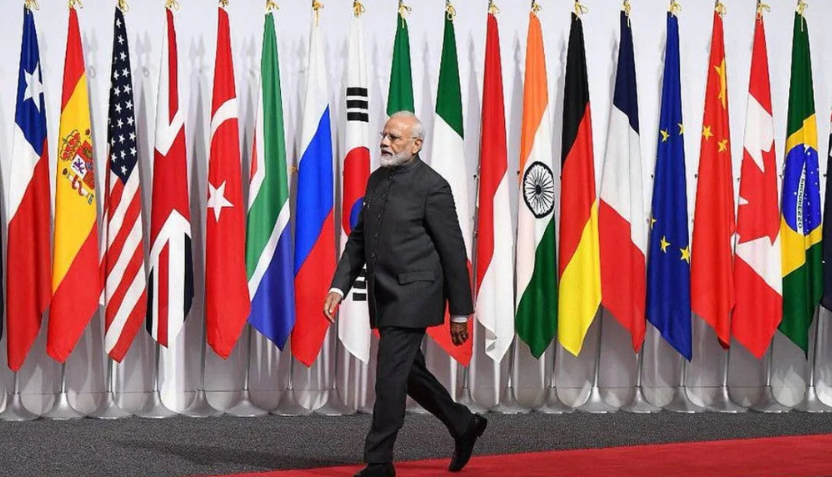
Prime minister of Bharat walking on the summit of G20 hosted by Bharat KNOWN as India.[CNN.com]
Upon India’s hard-fought independence from British colonial rule in 1947, right-wing Hindu nationalists, including some associated with the RSS, advocated for the division of British India into two separate nations: a Hindu-majority India and a Muslim-majority Pakistan. Gandhi, in contrast, vehemently opposed the partition of the country and advocated for a united India that welcomed people of all faiths.
Tragically, less than a year after independence, Gandhi was assassinated by Nathuram Godse, a former member of the RSS. In recent years, a fringe movement has emerged that worships Godse, attempting to rehabilitate his image as a Hindu nationalist icon.
Simultaneously, the Bharatiya Janata Party (BJP) and its supporters have faced accusations of downplaying the legacy of India’s first prime minister, Jawaharlal Nehru, who was a devoted admirer and ally of Gandhi.
Prime Minister Narendra Modi has consistently condemned the worship of Nathuram Godse and has repeatedly praised and paid homage to Gandhi, both within India and on the global stage.
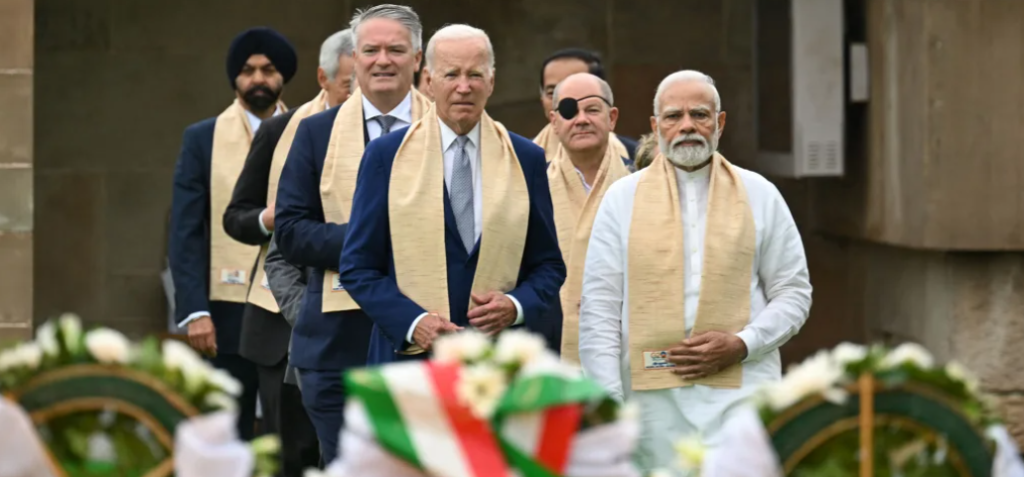
However, opposition politicians have criticized Sunday’s memorial service, alleging a double standard in Modi’s approach.
The newly formed INDIA alliance, a coalition of political parties with the aim of challenging Modi’s leadership in the upcoming general election, made a pointed statement on social media: “Every RSS-BJP worker must watch this video. Your hero, Nathuram Godse, killed Mahatma Gandhi. For decades, you propagated falsehoods against Gandhi Ji. You yourselves are filled with hatred towards him and continue to diminish his contributions and spread lies about him.” (USnewsSphere)
In essence, the situation reflects the complex and contentious ideological landscape in contemporary India, where differing viewpoints on the legacy of figures like Gandhi, Godse, and Nehru continue to shape political discourse and public sentiment.


